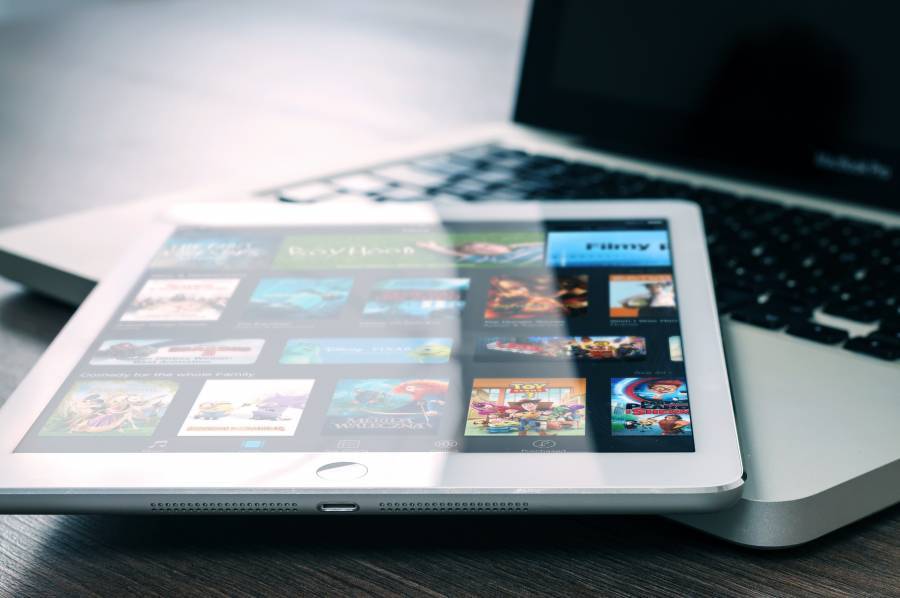While streaming has taken off — with more than 60 percent of young Americans using streaming services as their primary TV venue — it’s also invaded our bedrooms. A 2018 Tuck survey of 1,300 Americans found that more than 85 percent of us watch streaming TV in bed, with 70 percent of them falling asleep to the soothing sounds of shows like “Sons of Anarchy.”
More than a third of those surveyed said streaming TV in bed made them get less sleep. That might explain one of the reasons Americans aren’t getting enough sleep. While experts recommend that adults get a minimum of seven hours of shut-eye per night, Gallup found that Americans average only 6.8 hours. A whopping 40 percent didn’t even snag six hours. That means adults in the U.S. are operating in a constant fog of sleep deprivation.
Our ubiquitous technology has seemingly made everything, from work to entertainment, easier on us — everything, that is, except sleep. How will our reliance on technology impact our ability to recharge?
How Tech Can Make Us Duller
In a world where the nature of work is constantly changing and automating, staying sharp is crucial. But even one night of sleep deprivation can slow our reaction times. In fact, a Stanford University study from nearly 20 years ago found that a lack of sleep can impair a person’s reaction time as much as alcohol can. So why do we continue to forfeit sleep, two decades later?
We’re biting off our nose to spite our face. Americans now work more hours than people from any other industrialized nation. Those hit hardest are white-collar workers, or those who tend to have nonexempt jobs that are harder to track. These roles, which are intended to help design the automated, tech-savvy future, are widely viewed as mentally draining — sitting in front of a computer all day wipes people out.
As a result, these are often the very people who climb into bed to binge a few mindless episodes — they’re mentally tapped out and unable to consider doing something more intensive. But falling asleep in front of the TV then leaves them exhausted the next day, repeating the cycle. The irony? These jobs are frequently the ones tasked with innovation, but the workers who hold them are too tired to make their firms competitive.
When just the blue light emitting from TVs, tablets, and smartphones harms the quality of our sleep, it becomes apparent that falling asleep during our streaming sessions is simply extending the exhaustion of sitting in front of a computer during our waking hours, dragging it into our sleep.
Is Detox the Only Way Back to Sanity?
Social media breaks, or “social media detox,” have become common ways for people to recalibrate their sense of reality and restore their own values. Is the solution here to forgo Netflix, Hulu, Roku, Amazon Prime, and other streaming services so we can get back to our normally functioning brains?
The question may be better phrased as “Why would we want to?” If streaming services like Netflix et al. represent the positive outcomes of our attempts to utilize technology while pushing our industries forward, we shouldn’t abandon them wholesale in the interest of more sleep. That assigns negative intent to neutral technology, and it takes a pretty dim view of the human capacity for self-control.
Instead, we should look for ways to retrain our brains — much like we train our algorithms — to respond differently to the stimuli. Here are a few ways we can do that.
Kick TV out of the bedroom. While giving up streaming in bed may sound pretty “unsexy,” that’s not what the bedroom was designed for — and you’re holding yourself back by letting screen time creep into your sleep time. By not bringing a TV into the room, you can squelch the temptation. If tablets, laptops, or smartphones are your nemeses, make nighttime charging time and set them aside. What you gain in 25 minutes of viewing you probably lose in an hour of productivity and focus the next day — is it worth it?
Set limits. We’ve all been guilty of saying things like “I need to read more” or “I never can find time for my hobbies.” We do have time; we just often choose to spend it on things like streaming old episodes of “The Office.” These may serve as comforts after a long, exhausting day, but doing that every day can result in complacency. Reserve binges to really trying days, and force yourself to log off after a certain period of time on other days. If you make yourself turn off Netflix at 9 p.m., you gain an hour to read before you sleep, which you’ll find more energizing in the long run.
Consider the diminishing returns. If you’re a logical, linear thinker — and thus attracted to technology — one way to short-circuit your reliance on technology is to assess the long-term impact. Is your third go-around of “Friends” teaching you new things? It might be, but it might not. If you feel you’re growing stagnant or not progressing the way you feel you should be, cut the cord on the programs that result in diminishing returns. If they’re not giving you an injection of inspiration or peace of mind, replace them with something that will.
A constant fog of sleep deprivation isn’t good for us — or our companies. By allowing technology to take over our work, our entertainment, and our sleep, we’ve given up control of every human frontier. Prioritizing our ability to recharge may just be the key to staying innovative.










